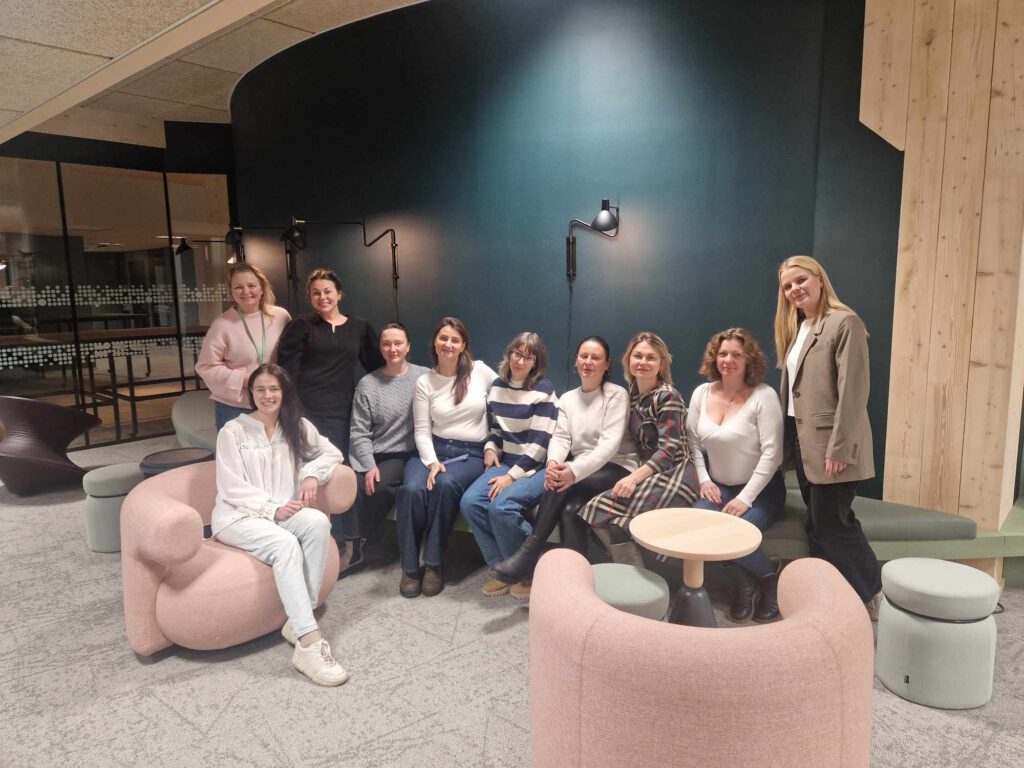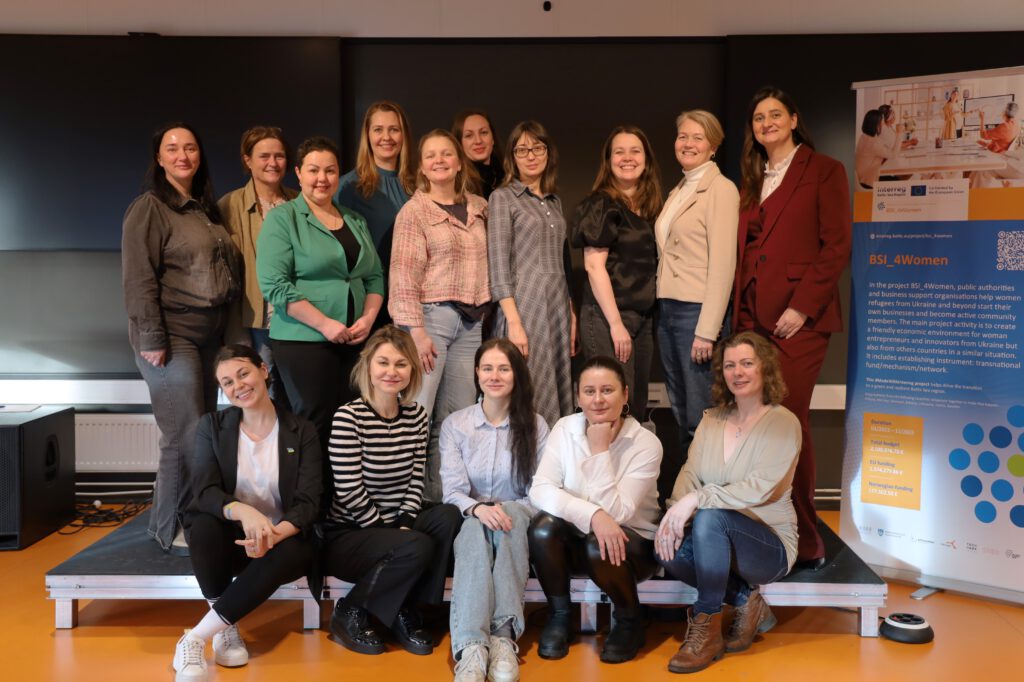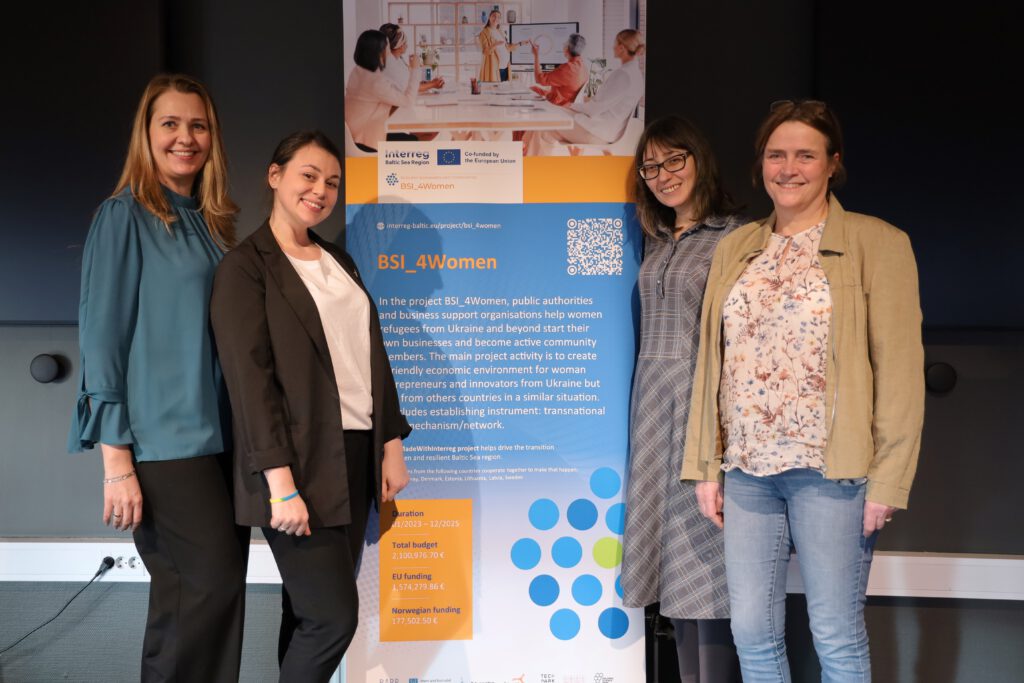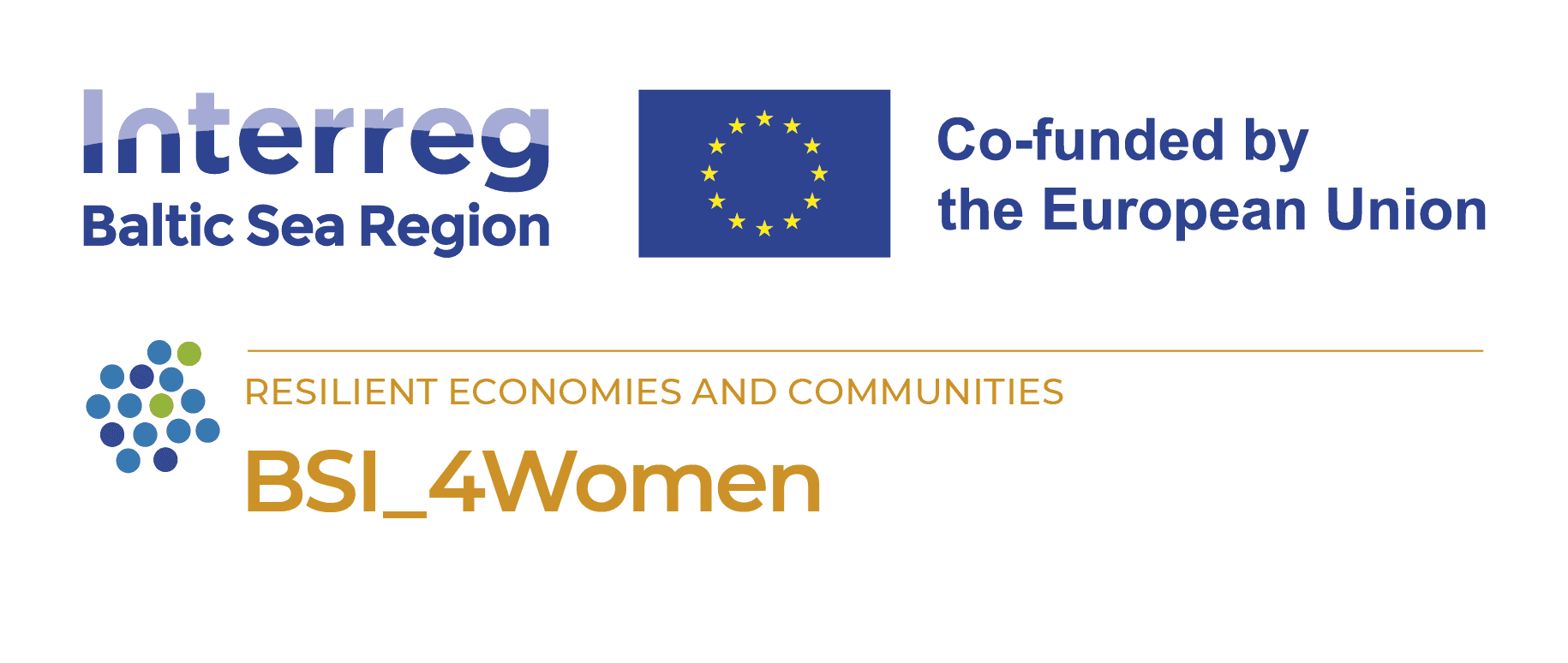
Pilot Action in Norway
18 November 2025
BSI_4Women Pilot Action: Supporting Refugee Women Entrepreneurs in Norway
Introduction
The Norwegian pilot of the BSI_4Women project aimed to help refugee and migrant women develop and validate their business ideas. The Norwegian pilot was led by Møre and Romsdal County Council led within the Interreg Baltic Sea Region Programme. The programme combined mentoring, thematic workshops, and cooperation with regional partners to support both entrepreneurship and social integration.
1. Outreach and Recruitment
1.1 Promotion and Institutional Outreach
Preparations for the pilot’s information campaign began before summer 2024. To reach Ukrainian women, the project team planned a dedicated webinar and launched promotional activities on 5 August 2024.
Information about the webinar and upcoming incubation programme was shared through emails to regional partners, including Refugee Services from 27 municipalities (Flyktningetjenesten), NAV, Adult Education Centres, and the hoppid.no business support network. These partners were asked to distribute the information to potential participants.
1.2 Digital and Community-Based Communication
A LinkedIn post from the County Council’s official account was widely shared by project partners such as Vindel, Protomore, Nordveggen, and SUNS. A detailed event notice was also published on the County Council’s website.
To strengthen outreach, the team also used community networks of Ukrainian women. Information was shared via Facebook, WhatsApp, and Telegram groups commonly used by Ukrainians across Norway.
1.3 Introductory Webinar
The introductory webinar on 22 August 2024 presented the goals, structure, and benefits of the BSI_4Women programme. Around 40 women attended, showing strong engagement and interest.
2. Recruitment Process
2.1 Application Period and Management
The recruitment phase ran from 22 August to 25 September 2024. Applications were submitted through the BSI_4Women digital platform, which used standardised forms and evaluation templates.
Out of 41 registered candidates 23 submitted complete applications, 6 saved drafts, 4 remained inactive. Following eligibility checks and expert assessment, 10 women were selected for the Norwegian incubation programme. 9 women accepted the place in the programme.
2.2 Participant Profiles
All selected participants were Ukrainian nationals living in seven different municipalities in Møre and Romsdal. They brought diverse professional backgrounds, and four business ideas showed particularly strong innovative potential.
3. The Norwegian “ReStart” Incubation Programme
3.1 Approach and Learning Model
The ReStart programme used a learning model combining in-person workshops, individual mentoring, expert consultations and networking with regional entrepreneurs and support agencies. Its main goal was to help participants transform business ideas into viable start-up concepts.
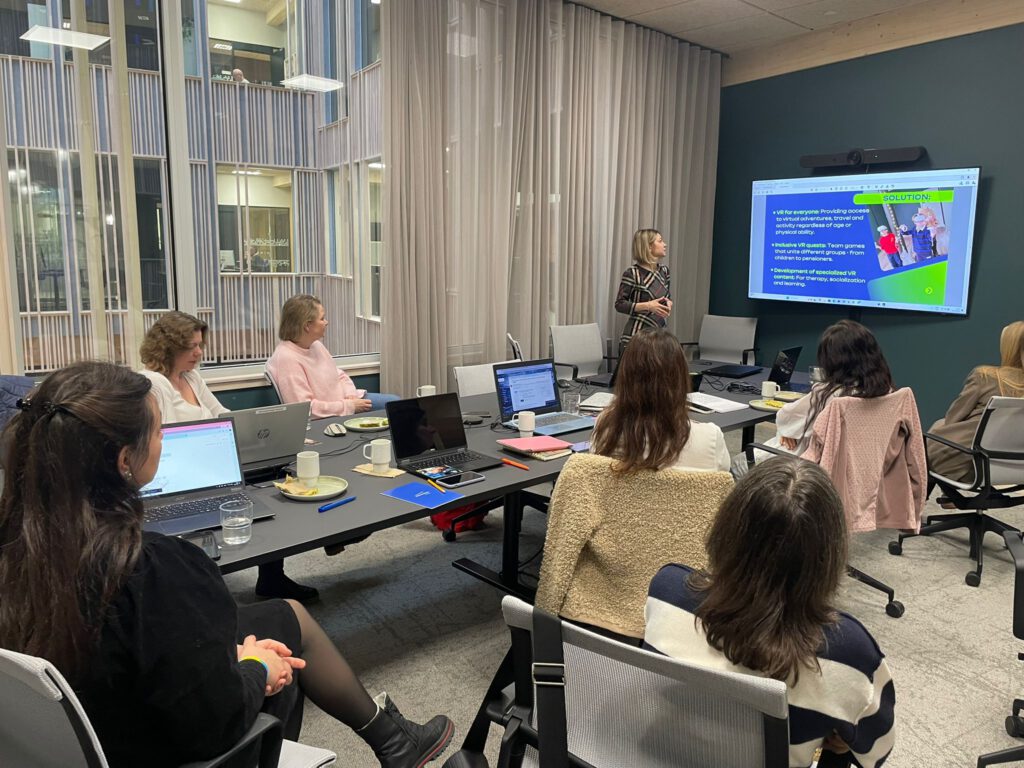
3.2 Mentoring and Expert Support
Participants were supported by nine mentors specialising in fields such as tourism, construction, business development, investor strategy, marketing, and networking.
A further five external experts delivered sessions on company establishment, project management, funding schemes, business development, design thinking, accounting, and finance, Norwegian business culture and networking.
3.3 Workshop Structure
Five full-day workshops (10:00–16:00) were held between October 2024 and February 2025:
- Session 1 – 31.10.2024: Idea, Customer, Market
Focus on customer needs and market understanding. (9 participants) - Session 2 – 28.11.2024: Business Model
Work on resources, partners, marketing, and revenue streams. (7 participants) - Session 3 – 12.12.2024: Sales and Networking
Developing pitching skills and communication techniques. (9 participants) - Session 4 – 16.01.2025: Finance and Implementation
Financial planning, risk assessment, and funding strategies. - Session 5 – 06.02.2025: Presentation and Demo Day Preparation
Refining business pitches for stakeholders.
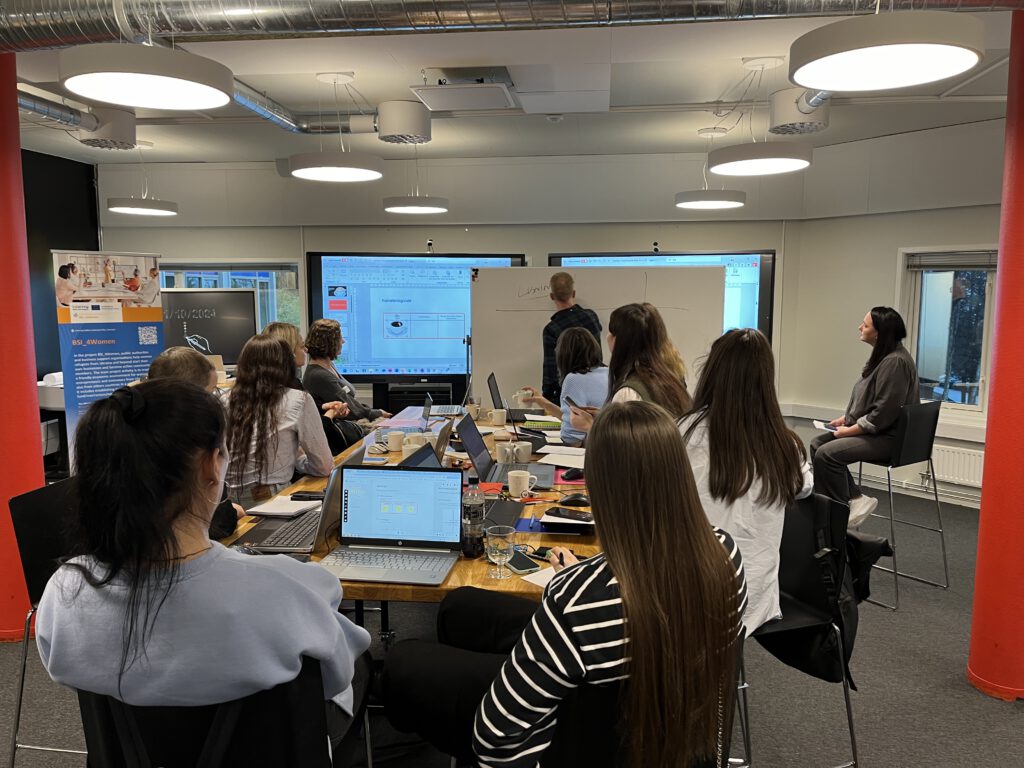
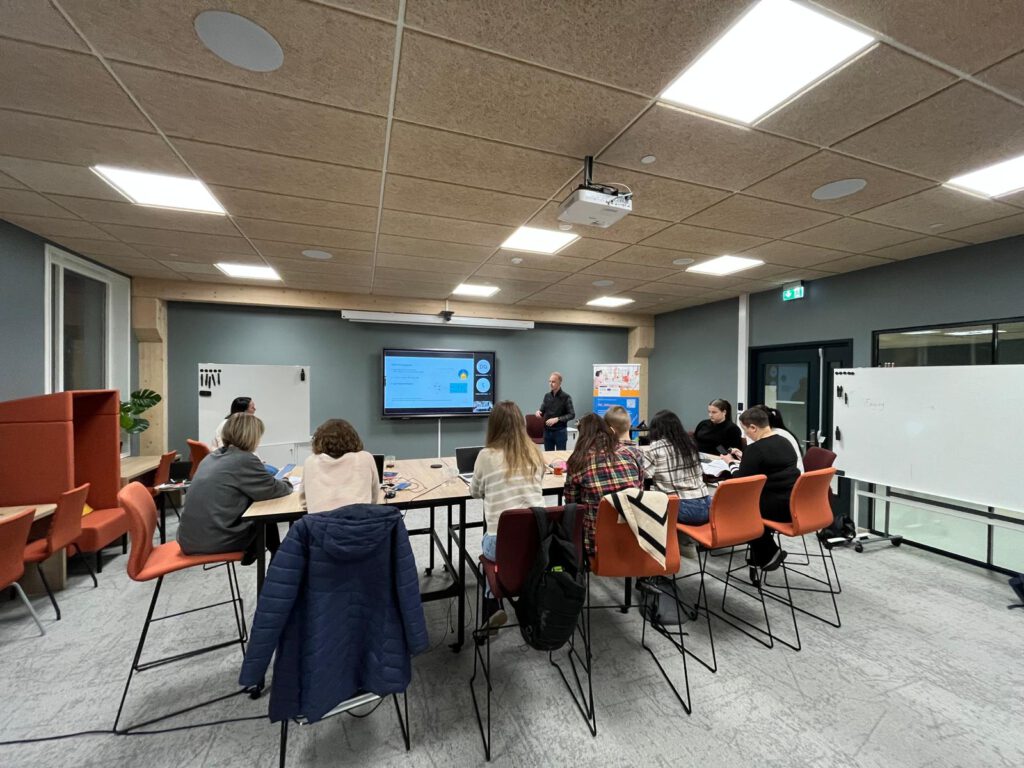
3.4 Individualised Support
Each participant received a personalised incubation plan, individual mentoring, one-to-one business and financial consultations. Regional partners Protomore, Vindel, and Sparebanken 1 Midt-Norge contributed specialist input and links to the wider innovation ecosystem.
4. Regional Demo Day
The Regional Demo Day took place on 6 February 2025 at Protomore in Molde. Each participant presented a 10-minute pitch before a jury representing Protomore, Vindel, Haram Municipality, SUNS, and the County Council.
The event created a supportive environment for feedback, visibility, and networking. Several business ideas were highlighted for their innovation, including:
- VR Services – Using VR headsets to offer solutions for the public sector
- Hotel – and trauma services centre
- Art Gallery – Art and innovation integrated with AI
5. Transnational Demo Day
One entrepreneur was selected to represent Norway at the Transnational Demo Day on 21 May 2025 in Jasionka, Poland. The Norwegian delegation included one participant (business idea: Space VR), one member of the MRCC project team, three external experts from Innovation Norway, Vindel, and Nordveggen AS
6. Post-Incubation Support
After completing the programme, participants received continued guidance to help them take the next steps. Support included access to mentors for follow-up advice, help with funding applications and business registration, networking opportunities with local business actors and guidance on further contact with Hoppid.no and Innovation Norway. Some participants advanced their business ideas, while others used the programme to build skills and confidence that support future entrepreneurship or employment.
7. Key Learning and Impact
Participants faced barriers such as lack of network, limited time, family responsibilities, and language challenges. Their strong motivation, combined with mentors’ flexible and supportive approach, enabled steady progress throughout the programme. Key insights from the Norwegian pilot include collaboration with local networks improves recruitment, tailored mentoring is crucial for supporting refugee women, regional partnerships strengthen programme quality and that entrepreneurship can support both integration and financial independence.
Conclusion
The Norwegian pilot of BSI_4Women demonstrated that entrepreneurship can be a powerful tool for integration and empowerment. Through a safe and supportive learning environment, combined with access to real business networks, the programme helped refugee women strengthen their skills, build confidence, and take concrete steps towards launching their own businesses.
Interactive map showing pilot locations. Use the arrow keys to move the map view and the zoom controls to zoom in or out. Press the Tab key to navigate between markers. Press Enter or click a marker to view pilot project details.





